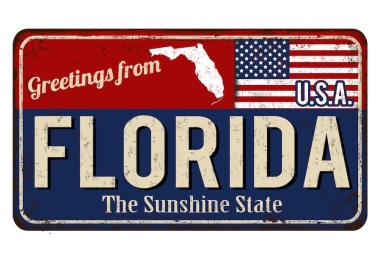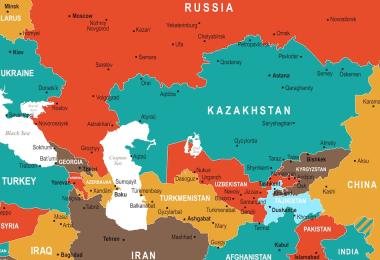Austrian wine production is predominantly artisanal, defined by high quality wines, native grape varieties and numerous small family winegrowers. The Austrian wine revolution began in the late 1980s when producers realized that they could never compete on the international market with high volumes; focusing on quality would be the key to long-term success. The Austrian wine branch rolled up its sleeves to work together across the board, from wine production, governance, marketing and events, to retail and education.
National Viticulture Association
The Österreichische Weinbauverband (ÖWV), or Austrian Viticulture Association, is the official body representing the interests of winegrowers in Austria. A national wine committee and regional interprofessional committees were established on the initiative of the ÖWV on a legal basis in 2001. This created the prerequisite for the establishment of EU protected geographic indications and EU protected designations of origin. As the peak of protected designations of origin, the regional committees have since established 17 DAC (Districtus Austriae Controllatus) appellations for still wines and a classification hierarchy for Austrian sparkling wines.

Environmental protection and sustainability have become a major focus of the national viticulture association under current ÖWV president Johannes Schmuckenschlager and managing director Josef Glatt. “7,242 ha (16 %) of Austria’s total area under vines is currently cultivated organically, making Austria a leader in this sector on the world stage. Almost one fifth of the organic area is farmed biodynamically. 15.2 % of the vineyard area has been certified as sustainable, while the rest is predominantly cultivated according to the environmentally progressive ÖPUL regulations for integrated production,” states Josef Glatt.
Generic Marketing Board
Shortly after taking his role as managing director of the Austrian Wine Marketing Board (ÖWM) at the beginning of 2020, Chris Yorke was faced with Covid-19 lockdown restrictions. He quickly reoriented Austrian Wine’s activities to focus on the remaining open channels. A number of campaigns were launched on the domestic market to focus on online and ex-cellar sales and international activities were adapted with online tastings and hybrid events. In 2021, over 100 events were organised, either as virtual, hybrid events or events held on location, depending on the situation in the particular market. Over the course of the year, Austrian Wine presented more than 4,600 wines from 600 different wineries.

More than 15% growth in 2021
Austria was well positioned as the hospitality industry around the world reopened after pandemic lockdowns restrictions and wine export figures for 2021 exceeded all expectations. According to Statistics Austria the €200 million mark was topped for the first time in history, and the €29.5 million increase to €216.8 million (+15.7%) is the highest rise in value ever recorded for Austria’s wine exports. It also significantly surpassed the increase in quantities exported (+3.8% up to 70.2 million litres). This also meant that Austria’s average export price grew.
Chris Yorke expands, “Austria’s bottled white Qualitätswein experienced growth of 23 %, representing over half the revenue from Austrian exports. Bottled red Qualitätswein grew 3.1 % in value and this was even more marked in the sparkling wine category with +34 % in value.”

VieVinum
Alexandra Graski-Hoffman is the managing director of M.A.C. Hoffmann & Co GmbH, leading specialist for the organisation of lifestyle fairs and events, and the organiser of Austria’s most important wine fair, the VieVinum. Perhaps the world’s most elegant wine trade fair, the VieVinum takes place in the glamorous Hofburg Imperial Palace in Vienna from 21 to 23 May 2022. The fair is an important platform for the most influential global wine players and focuses on the establishment of new trade contacts and the cultivation of existing partnerships. Approximately 500 exhibitors – producers, importers, and distributors from Austria and all over the world will present a national and international product range.
Wine Education
Austria demonstrates a long commitment to wine education. Founded in 1860, the Klosterneuburg Weinbauschule is the oldest school of viticulture and oenology in the world. To supplement this institution and Austria’s other regional vocational schools for wine business and production, the University of Natural Resources and Life Sciences in Vienna offers Bachelor and Master degree in viticulture and oenology under the leadership of Professor Dr. Astrid Forneck.
Founded in 1991, the Weinakademie Österreich (Austrian Wine Academy) is as an independent non-profit institution focussed on wine education for adults. With over 800 seminars and around 15,000 participants each year, the Weinakademie Österreich is the largest wine school in continental Europe. The academy offers diploma courses in Austria, Germany, Switzerland, Hungary and Italy and is a host for Institute Masters of Wine residential courses. “More than 1000 students from 45 countries have graduated from the Weinakademie with a WSET Diploma and/or Weinakademiker title and now fill key positions in the international wine branch. Eleven of our graduates have gone on to become Masters of Wine,” states Dr. Josef Schuller MW, managing director and founder of the Weinakademie Österreich.
Sommeliers
Diplom-Sommelière and restaurateur Annemarie Foidl was appointed president of the Sommelier Union Austria (SUA) in 2008. The SUA is the umbrella organization for nine state sommelier associations and their 1,900 members. Foidl has been instrumental in standardizing sommelier education to its current high standards in Austria. Tourism and hospitality is an important sector in Austria and it is pleasing to find so many well-trained sommeliers and well-appointed wine lists in restaurants throughout the country. Master Sommelier Alexander Kolbinger of Döllerer, René Antrag of Restaurant Steirereck, and Thomas Juranitsch of Restaurant Silvio Nikol at Palais Coburg groom three of the top restaurant wine lists in the country. Sommeliers are important ambassadors for wine culture that often offer guests from. abroad their first encounter with Austrian wine.

Point of Sales
Over the past 15 years, an average of 2.5 million hl of wine were consumed annually in Austria. In 2019, the hotel, restaurant, and catering (HORECA) sector accounted for 58 % of wine consumption in Austria. HORECA was hit particularly hard in the Corona year 2020. According to GastroData, wholesalers sold 33 % less wine to HORECA in 2020 than in 2019.
Over the past 20 years, multiple grocers have become the most significant intermediaries as far as consumption at home is concerned, at the expense of traditional cellar door sales. Only 8 % of all revenue of wine consumed at home is generated by specialist wine retailers. Wine sales increased significantly in the food retail sector since the beginning of the pandemic. During 2020, both sales revenue and volume saw strong growth, increasing by 13.9 % and 11.7 % respectively. Austrian wine had a 65.2 % market share in terms of volume and 73.1 % in terms of revenue.
Another logical consequence of Corona lockdowns was a strong shift toward e-commerce. According to GFK, the number of online wine buyers in Austria increased by 48 % to around 124,000 between October 2019 and 2020. These consumers spent just under 60 euros per purchase.
“The number of orders placed on the INTERSPAR online shop weinwelt.at increased by 64 % in 2020.”

Waltraud Scharnagl is responsible for campaign management and product range coordination of the INTERSPAR wine, sparkling wine and spirits, Austria’s price-performance winner in online wine shops according to the ÖGVS survey. The INTERSPAR online shop weinwelt.at is more popular than ever in Austria and records double-digit annual growth rates. To accommodate this growth, the warehouse of the INTERSPAR online shop was moved to the logistics centre in Loosdorf (Lower Austria) last autumn. With the help of innovative technologies and a new warehousing system, 2,500 orders can be sent to customers each day. The storage area was expanded to 3,200 m2. INTERSPAR is thus reacting to the increasing online demand.








